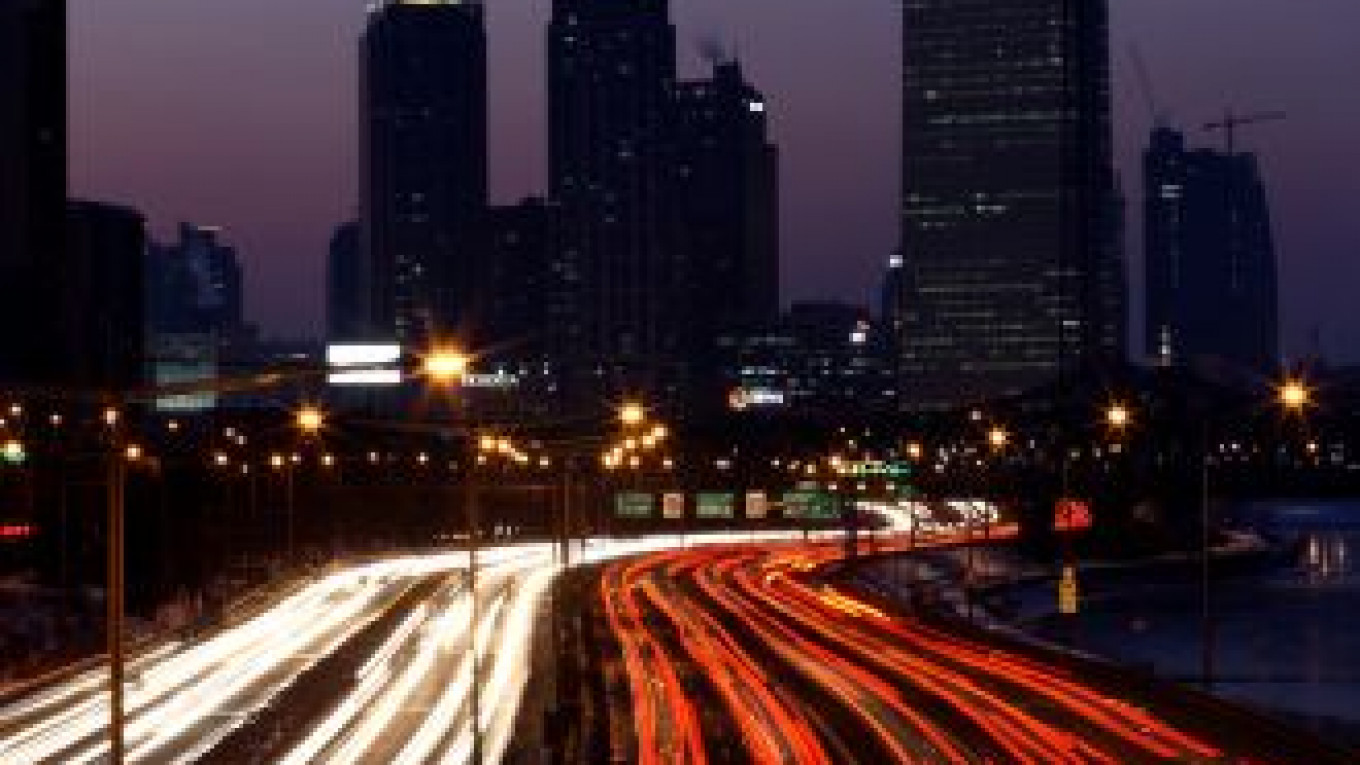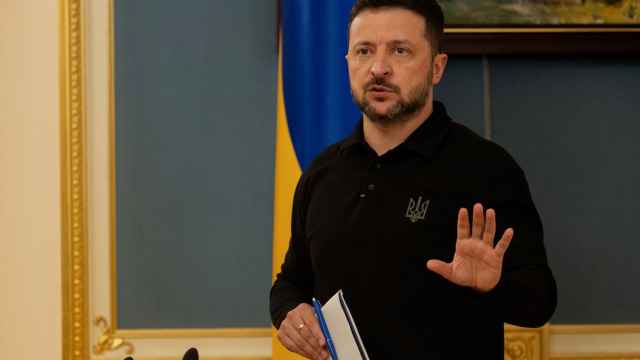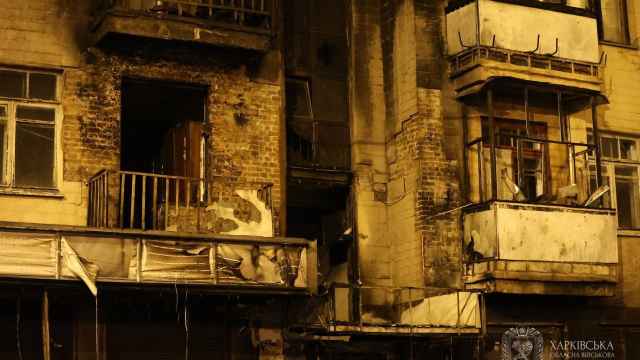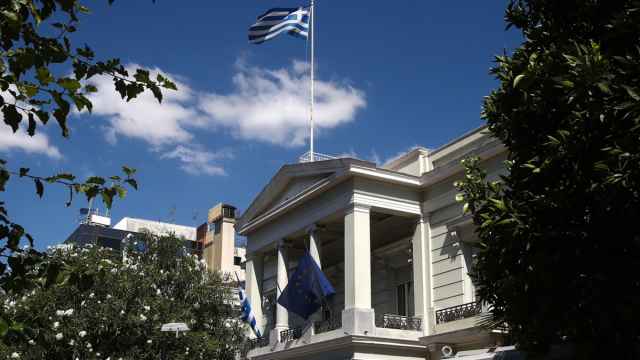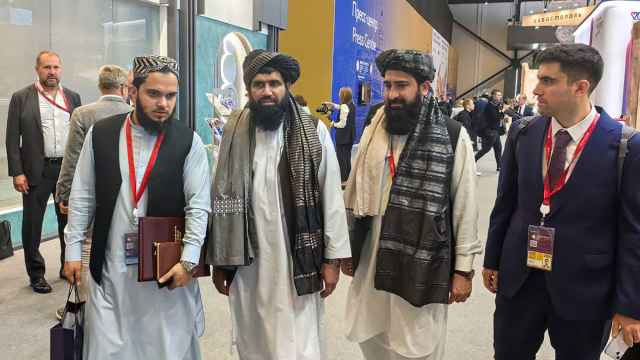Moscow Mayor Sergei Sobyanin began a three-day visit to Seoul on Wednesday to meet with a number of politicians and businessmen and learn about Korean successes in fighting traffic jams in that city, Interfax reported.
The mayor has noted on several occasions that the experience of European capitals cannot be applied in Moscow because of its higher population density. But Seoul, with a population of more than 10 million, is the perfect learning ground for his administration, an Interfax source said.
Another source in the Moscow mayor's office said Seoul's experience building road infrastructure alongside dense housing is what drew Sobyanin to Seoul instead of European capitals.
The mayor and his team will meet with South Korean President Lee Myung-bak, as well as a former mayor of Seoul and the management of Samsung, Hyundai, LG and Lotte, a source close to the Moscow government told Interfax.
The Korean side will show Sobyanin robotic parking, the local intelligent transportation system and buses that run on compressed natural gas.
Sobyanin has made solving Moscow's traffic problems a top priority, proposing at different times such measures as moving storage facilities out of Moscow, limiting freight transportation in the city, introducing fees for driving into the city center and scheduling government workers to start work at 8 a.m. instead of 9 a.m.
Most of these initiatives have been welcomed by Muscovites, according to a recent poll by VTsIOM, with the exception of a toll for driving into the city center and banning trolleybuses downtown.
A Message from The Moscow Times:
Dear readers,
We are facing unprecedented challenges. Russia's Prosecutor General's Office has designated The Moscow Times as an "undesirable" organization, criminalizing our work and putting our staff at risk of prosecution. This follows our earlier unjust labeling as a "foreign agent."
These actions are direct attempts to silence independent journalism in Russia. The authorities claim our work "discredits the decisions of the Russian leadership." We see things differently: we strive to provide accurate, unbiased reporting on Russia.
We, the journalists of The Moscow Times, refuse to be silenced. But to continue our work, we need your help.
Your support, no matter how small, makes a world of difference. If you can, please support us monthly starting from just $2. It's quick to set up, and every contribution makes a significant impact.
By supporting The Moscow Times, you're defending open, independent journalism in the face of repression. Thank you for standing with us.
Remind me later.


